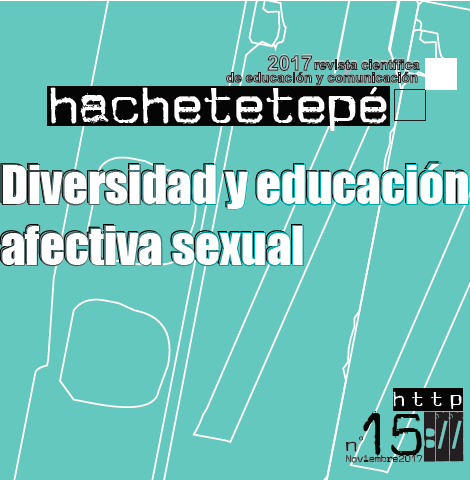Stories of young people’s social distress who does not study and work: the italian case.
Abstract
The essay shows the outcomes of a qualitative research, conducted in Italy, on young people who does not study and work (Neet) and who lives in social distress. The young people interviewed turn to Caritas to find a job or to receive economic assistance. The study focuses on those situations where social distress is already evident in the youth’s lives. Through the interview it is analyzed the fundamental stages or the relevant phases in the life of the people interviewed: family background, schooling, the motivation behind the type of school chosen, the motivations behind dropping out of school altogether, work expectations, modes of job search. From their narratives emerge family histories of severe economic and social distress, worsened by life experiences marked by repeated failures. The image of the NEETs in a situation of social distress emerging from the interviews was characterized by an attitude of discouragement, depression and isolation.
Keywords
Downloads
How to Cite
License

This work is licensed under a Creative Commons Attribution-NonCommercial-NoDerivatives 4.0 International License.
Those authors who have published with this journal, accept the following terms:
- They will retain their copyright and guarantee the journal the right to first publication of their work, which will simultaneously be subject to the Creative Commons Attribution License . They may be copied, used, disseminated, transmitted and publicly displayed, provided that the authorship, url, and magazine are cited, and are not used for commercial purposes. No derivative works are allowed.
- They may adopt other non-exclusive license agreements for the distribution of the published version of the work (e.g., deposit it in an institutional telematic archive or publish it in a monographic volume) provided that the initial publication in this journal is indicated.
- Disseminate your work through the Internet (e.g., in institutional telematic archives or on your website) once the manuscript is accepted, which may lead to interesting exchanges and increased citations of the published work. (See The effect of open access).
Hachetetepé. Scientific journal of education and communication does not charge a fee for the submission of manuscripts or for the publication of its articles.
References
Agnoli, M. S. (2014). Generazioni sospese. Percorsi di ricerca sui giovani Neet. Milán: Franco Angeli.
Alfieri, S.; Sironi, E., Marta, E., y otros, (2015a). Young Italian NEETs (Not In Employment, Education, or Training) and the Influence of Their Family Background. Europe’s Journal of Psycology, 11(2); 311-322.
Alfieri, S.; Sironi, E.; Marta, E.; y otros (2015b). Who are italian NEETs? Trust in institution, political engagement, willingness to be activated and attitudes toward the future in a group at risk for social exclution. Rivista Internazionale di Scienze Sociali, 3; 285-306.
Arulampalam, W.; Gregg, P.; Gregory, M. (2001). Unemployment scarring. Economic Journal, 111 (475); 577-584.
Benasayag, M.; Schmit, G. (2004). L’epoca delle passioni tristi. Milán: Feltrinelli.
Bichi, R. (2002). L’intervista biografica. Una proposta metodologica. Milán: Vita e Pensiero.
Calabrese, S.; Manieri, M.; Mondauto, L. (2013). Le determinanti del NEET status. Roma: Italia Lavoro.
Colombo, M. (2010). Dispersione scolastica e politiche per il successo formativo. Trento: Erickson.
Debord, G. (1968). La società dello spettacolo. Bari: De Donato.
Del Boca, D. (2009). Italia. Partecipazione femminile al lavoro: vincoli e strategie. La Rivista Italiana delle Politiche Sociali, 3; 145-164.
Eurofound, (2016). Exploring the diversity of NEETs, European Foundation. Disponible en: https://www.eurofound.europa.eu/it/publications/report/2016/labour-market-social-policies/exploring-the-diversity-of-Neets)
European Commission (2017), Employment and Social Developments in Europe 2017, Disponible en: europa.eu/rapid/press-release_IP-17-1988_it.pdf
Granovetter, M. (1998). La forza dei legami deboli, Nápoles: Liguori editore.
Gregg, P. (2001). The Impact of Youth Unemployment on Adult Unemployment in the NCDS. Economic Journal, 111(7); 626-653.
Istituto Toniolo, (2014). La condizione giovanile in Italia. Rapporto sui Giovani 2014. Bolonia: il Mulino.
Leccardi, C. (1996). Futuro breve, le giovani donne e il futuro. Turín: Rosenberg & Sellier.
Moreno, L. (2002). Bienestar mediterranéo y “supermujeres”. Revista Española de Sociología, 2; 1-57.
Naldini, M. (2003). The Family in the Mediterranean Welfare State. Londres: Frank Cass.
Nanni, W.; Quarta, S. (2016). Nel paese dei NEET. Rapporto di ricerca sui giovani Neet in condizioni di povertà e disagio sociale. Roma: Edizioni lavoro.
Narendranathan, W.; Elias, P. (1993). Influences of Past History on the Incidence of Youth Unemployment: Empirical findings for the UK. Oxford Bulletin of Economics and Statistics, 55 (2); 161-186.
NESSE, (2009). Early School Leaving. Disponible en: https://www.spd.dcu.ie/site/edc/documents/nesse2010early-school-leaving-report.pdf.
Recalcati, M. (2013). Il complesso di Telemaco. Genitori e figli dopo il tramonto del padre. Milán: Feltrinelli.
Rosina, A. (2015). NEET giovani che non studiano e non lavorano. Milán: Vita e Pensiero.
Saraceno, C. (1993). Discontinuità biografiche tra norma e imprevisto. Rassegna Italiana di Sociologia, XXXIV (4); 481-486.
Saraceno, C. (2015). Il lavoro non basta. La povertà in Europa negli anni della crisi. Milán: Feltrinelli.
WeWorld, (2015). Ghost. Indagine sui giovani che non studiano e non lavorano o non si formano (i NEET): esperienze e politiche. Disponible en: www.weworld.it






